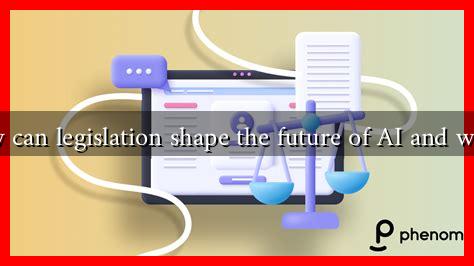-
Table of Contents
- How Can Legislation Shape the Future of AI and Work?
- The Role of Legislation in AI Development
- Case Studies: Successful Legislative Frameworks
- European Union’s AI Act
- California Consumer Privacy Act (CCPA)
- Potential Challenges and Considerations
- The Future of Work: A Collaborative Approach
- Conclusion
How Can Legislation Shape the Future of AI and Work?
As artificial intelligence (AI) continues to evolve and integrate into various sectors, the need for effective legislation becomes increasingly critical. The intersection of AI and work raises important questions about ethics, employment, and economic impact. This article explores how legislation can shape the future of AI in the workplace, ensuring that technological advancements benefit society as a whole.
The Role of Legislation in AI Development
Legislation plays a pivotal role in guiding the development and deployment of AI technologies. By establishing clear regulations, governments can ensure that AI systems are developed responsibly and ethically. Key areas where legislation can make a significant impact include:
- Data Privacy: Laws such as the General Data Protection Regulation (GDPR) in Europe set standards for data collection and usage, ensuring that individuals’ privacy is protected.
- Accountability: Legislation can define accountability for AI decisions, particularly in high-stakes areas like healthcare and criminal justice.
- Bias Mitigation: Regulations can mandate transparency in AI algorithms to reduce bias and discrimination, promoting fairness in hiring and other employment practices.
Case Studies: Successful Legislative Frameworks
Several countries have begun to implement legislative frameworks that address the challenges posed by AI. These case studies provide valuable insights into how effective legislation can shape the future of work.
European Union’s AI Act
The European Union is at the forefront of AI regulation with its proposed AI Act, which aims to create a comprehensive legal framework for AI technologies. The Act categorizes AI systems based on risk levels, imposing stricter requirements on high-risk applications, such as those used in employment decisions. This approach not only protects workers but also fosters innovation by providing clear guidelines for developers.
California Consumer Privacy Act (CCPA)
In the United States, the California Consumer Privacy Act (CCPA) has set a precedent for data privacy legislation. By granting consumers greater control over their personal data, the CCPA encourages companies to adopt ethical AI practices. This law has inspired similar initiatives in other states, indicating a growing recognition of the need for data protection in the age of AI.
Potential Challenges and Considerations
While legislation can provide a framework for responsible AI development, several challenges must be addressed:
- Rapid Technological Advancements: The pace of AI innovation often outstrips legislative processes, making it difficult for laws to keep up.
- Global Coordination: AI operates across borders, necessitating international cooperation to create cohesive regulations.
- Industry Resistance: Some companies may resist regulations that they perceive as hindering innovation or increasing costs.
The Future of Work: A Collaborative Approach
To effectively shape the future of AI and work, a collaborative approach involving governments, industry leaders, and civil society is essential. Stakeholders must engage in dialogue to create regulations that balance innovation with ethical considerations. This collaboration can lead to:
- Inclusive Policy-Making: Involving diverse voices in the legislative process can help ensure that regulations address the needs of all stakeholders.
- Continuous Learning: As AI technologies evolve, so too should the laws governing them. Ongoing education and adaptation are crucial.
- Public Awareness: Raising awareness about AI’s implications can empower citizens to advocate for responsible legislation.
Conclusion
Legislation has the potential to significantly shape the future of AI and work, ensuring that technological advancements are harnessed for the greater good. By establishing clear guidelines around data privacy, accountability, and bias mitigation, governments can create an environment where AI thrives while protecting workers’ rights. As we move forward, a collaborative approach involving all stakeholders will be essential in navigating the complexities of AI regulation. The future of work in an AI-driven world depends on our ability to legislate wisely and ethically.
For more information on AI legislation and its implications, you can visit ITU’s Focus Group on AI.

